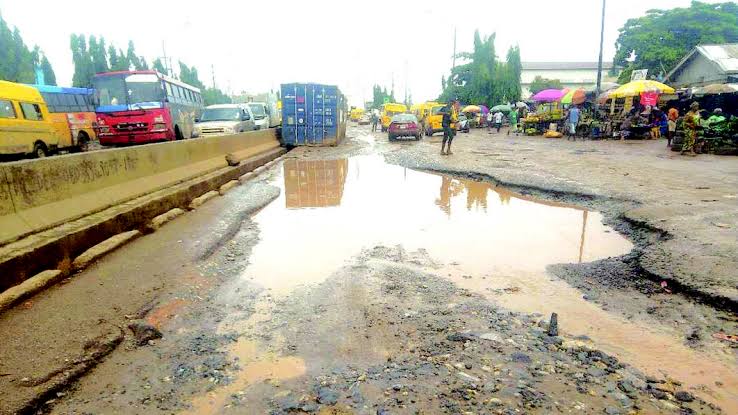A Cry for Change
The Nigerian experience is characterized by a complex interplay of socio-economic factors that often result in widespread discontent and frustration, even though as a Nation we are incredibly blessed with both human and natural resources. Among the most pressing issues facing the ordinary Nigerian is the ever-present threat of hunger due to the lack of basic amenities which is one of the very core duties of government. This article delves into the intricate relationship between hunger, anger, and the daily struggles of the Nigerian people.
Hunger is a pervasive problem in Nigeria, afflicting millions of citizens, particularly those living in rural areas and urban slums. The increasing high cost of food especially with the Tinubu-led administration, coupled with low (static) incomes and high unemployment, makes it difficult for many Nigerians to afford basic necessities. The consequences of hunger are far-reaching, impacting health, education, and overall well-being summing up to very low standard of living.
The experience of hunger can be a potent catalyst for anger and resentment. When people are unable to provide for themselves and their families, they may feel powerless and marginalized.
This sense of frustration can manifest in various ways, from peaceful protests to social unrest. Aside from the above, the imprudent spending of the government also largely contributes to this. For instance, how does a government who claims to feel the pulse of the people protesting against hunger and high cost of living purchase a new airplane with a whopping $150,000,000? The President has repeatedly told Nigerians to manage and be patient, he is known for his popular saying, “let the poor breathe”, Nigerians are currently gasping for air with the current level of insecurity (kidnappings for ransom, banditry etc.), cost of food, fuel price hike due to subsidy removal and other factors. This is actually the time to spend mindfully, Nigerians are watching and a level of hunger leaves a hungry man bereft of reasoning.
Hunger and anger can have a profound impact on society. When people are struggling to survive, they may be more likely to engage in criminal activities or become involved in political instability as is our default reality in present day Nigeria. Additionally, the psychological toll of hunger can lead to increased rates of depression, anxiety, and other mental health issues little wonder why we continue to hear unfortunate stories of suicide in the news.
To effectively address the dangers posed by hunger and anger, it is imperative to implement People-oriented policies that will bring about socio-economic development which will in turn bring about economic growth in the nation. Some of these policy actions include:

Infrastructural Development: there must at all levels of government be strategic infrastructural Development in areas of electricity, transportation network, education, health etc. which will not just encourage small scale businesses but also bring about improved standard of living.
To start with, the Federal Government must put tangible things in place to cushion the effect of the removal of fuel subsidy that has triggered an increase in the cost of goods and services. The federal government provided palliatives of bags of rice to the citizens at the state level. The citizens have cried out that they are not getting the bags of rice, this reeks of poor planning. What is happening at this time, the level of hunger, that has increased the rate of crime and its likes is very serious and should be treated with the urgency it deserves. This should have been thoroughly planned, involving the media to cover the process of distribution.
About two weeks ago, in a bid to reduce food inflation, the federal government approved the implementation of 150-day duty-free import window for food commodities, which involves the suspension of duties, tariffs, and taxes for the importation of food maize, husked brown rice, wheat, and cowpeas. Economic analysts have come out to say this is a quick fix and doesn’t really address the problem; Emmanuel Oparah Ogu, former president of the Association of Nigerian Licensed Customs Agents (ANLCA), speaking to cable news said the tax waiver would have “no positive impact” because the main food items that Nigerians need were not included.

“The announcement has not reduced hunger in the country. Then when you talk of other food items, I don’t know another food item that people talk about if not rice,” he said.
“The husked rice is basically for farmers and not for the end users to access. They are not finished product. The announcement that Mr. President made it to please people because that is exactly what you want to hear.
Ogu urged the government to make all food items “duty-free both from land and sea” as that would go a long way to helping everyone, especially the poor.
On his part, Shakirueen Taiwo, an economist at Nigeria Economic Summit Group (NESG) said the goal of the government is basically to reduce the “current level of high food insecurity in the country by reducing the price of goods and services”.
“The government has to be sure that the imported goods are coming at a minimal cost so that the final cost to the end users will also be affordable or at a price lower than the current market price.
“So for this policy at this moment I would say it is good but it is even coming so late. The eradication of hunger will not come with one government policy. We would need to ensure that Nigeria’s agricultural potentials are at optimal level.”

More so, the Nigeria Customs Service (NCS) said that the federal government will lose N188.37 billion in revenue over the next six months due to the duty waiver.
Economic development: Investing in agriculture, and several other natural resources to create jobs and boost the economy.
Social safety nets: Providing social welfare programs to support vulnerable populations and ensure access to basic necessities.
Good governance: Promoting transparency, accountability, and effective leadership to combat corruption and improve service delivery. Cost of governance must also drastically reduce.
Community empowerment: Supporting grassroots initiatives and empowering communities to address their own needs.
Electoral Reforms: Elections are one of the fundamentals of a democracy. The government in power must be a reflection the popular will of the people, and to realize this, there’s a need to reform our electoral system and guidelines.
In conclusion, Nigeria is currently sitting on a keg of gunpowder, the growing discontent in the 6 geopolitical zones is testament to this fact. Even though we have seen little or no results from the just concluded “Hunger Protest”, the People must continue to leverage every legal means as it were to hold the government at all levels accountable to do the right thing. Government on the other hand must not only claim to be for the people in words but surely in actions. In summary, both the government and the people must take responsibility in bringing about a more prosperous and developed economy.
